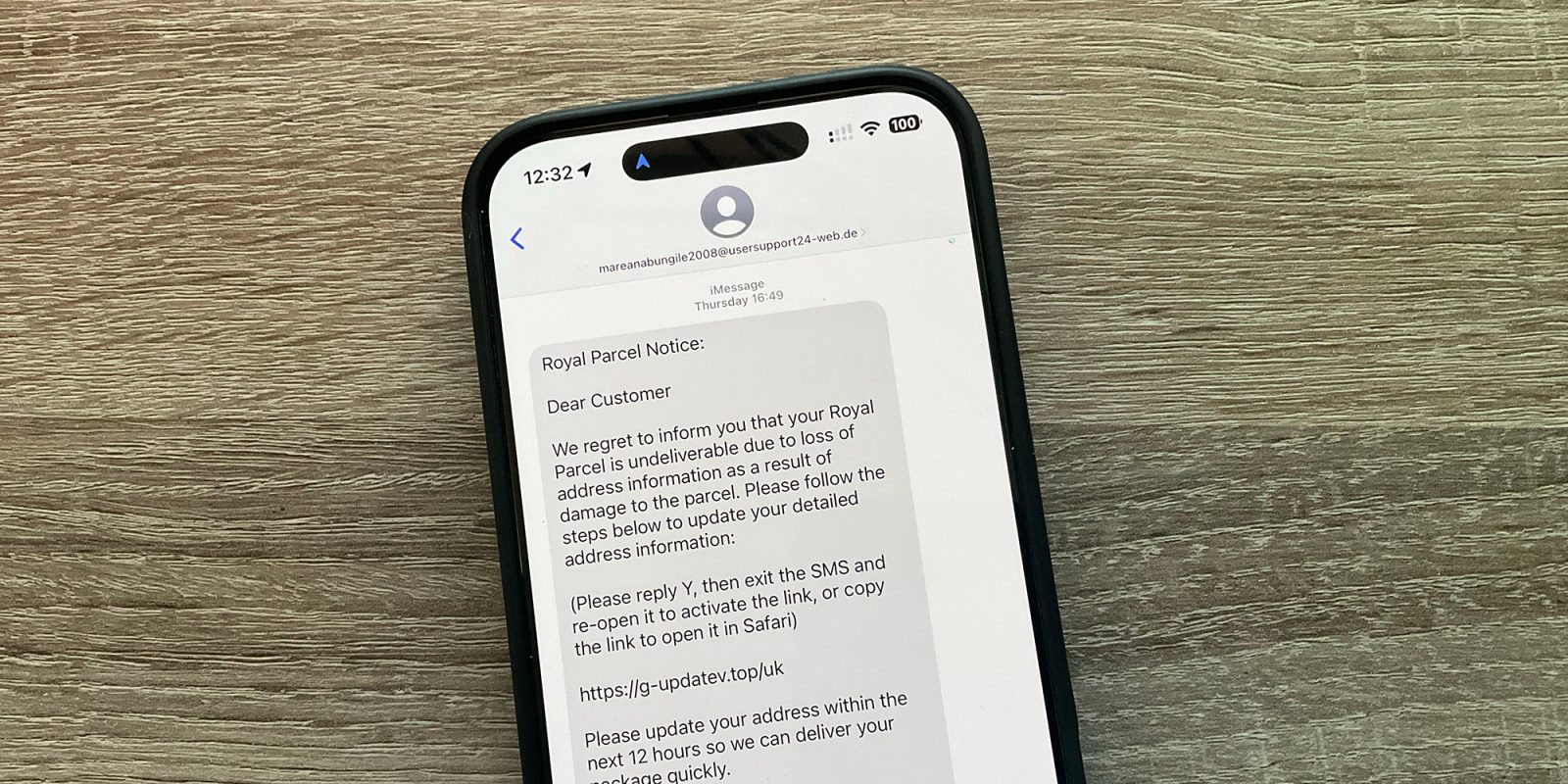A gotcha with iMessage scams, powered by Chinese phishing kit <div class="feat-image">

</div><p>A <a href="
https://9to5mac.com/guides/security/" target="_blank" rel="noreferrer noopener">security[/url] vulnerability has been discovered in the USB-C port controller fitted to the <a href="
https://9to5mac.com/guides/iphone-15/" target="_blank" rel="noreferrer noopener">iPhone 15[/url] and <a href="
https://9to5mac.com/guides/iphone-16/" target="_blank" rel="noreferrer noopener">16[/url]. However, exploiting it would be so complex that both <a href="
https://9to5mac.com/guides/aapl/" target="_blank" rel="noreferrer noopener">Apple[/url] and the security researcher who discovered it concluded that it is not a real-world threat.</p>
<p>However, a security concern that
does pose a threat to iPhone users is a tactic scammers are using to bypass one of Apple’s built-in protections.
Update: A flurry in E-ZPass scam messages appears to have been driven by a Chinese phishing kit – see new section below … </p>
<a data-layer-pagetype="post" data-layer-postcategory="imessage,security,usb-c" data-layer-viewtype="unknown" data-post-id="985797" href="
https://9to5mac.com/2025/01/20/security-vulnerability-in-iphones-usb-c-port-and-a-gotcha-with-imessage-scams/#more-985797" class="more-link">more�
A gotcha with iMessage scams, powered by Chinese phishing kit